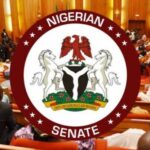Honourable Justice Dalyop Pam issued an order of perpetual injunction restraining FIRS and AGF from collecting and demanding personal income tax and VAT. The suit was filed by Attorney General of Rivers State. The court granted all the reliefs sought by AG Rivers State citing items 58 and 59 of the Exclusive Legislative List of the Constitution as the only authority limiting the tax collection of the federal government to taxation of incomes, profits and capital gains and this does not include VAT or any other sales or levies.
This judgment is exciting to some southerners who see the region of the country as the biggest source of VAT. It is unfortunate that the judgment will attract ethnic biases instead of unbiased and dispassionate legal analysis.
- VAT ruling: FG to lose taxes amidst dwindling revenue
- Ward congress: APC inaugurates appeal c’ttee, mum on membership
It is needful to note that out of the 36 states and the FCT, only five can boast of contributing the highest VAT collection in Nigeria. According to the 2020 report of BudgIT, Lagos, Ogun, FCT, Rivers are the highest contributors of VAT.
However, the legal perspective in respect of this judgment is a very interesting one. There is a Supreme Court judicial precedence on VAT involving AG of Lagos State Vs AG of the Federation. It was held by the Supreme Court that only a Federal High Court has original jurisdiction to entertain suits relating to federal revenues. Upon preliminary objection, the suit on VAT was only struck out and not resolved on merits. This confirms the judgment and jurisdiction of the Federal High Court sitting at Rivers State.
Interestingly, it is too early for anyone to jubilate because statutory interpretations can be tricky. The Concurrent Legislative List as provided for in the 1999 Constitution does not exclusively grant “state government” ultimate authority but empowers the National Assembly and state assemblies. In conflict between the two, the National Assembly will be supreme, this means the federal law will be ultimate. Specifically, items 58 and 59 of the 1999 Constitution grant FGN exclusive control on capital gains, profits and taxation of incomes but Part 2 of the Concurrent Legislative List provides thus; “In the exercise of its powers to impose any tax or duty on- (a) capital gains, incomes or profits or persons other than companies and (b) documents or transaction by way of stamp duties, “The National Assembly may subject to such conditions as it may prescribe, provided that the collection of any such tax or duty or the administration of the law imposing it shall be carried out by the government of a state or other authority of a state.”
It will be a fruitful intellectual adventure for lawyers and non-lawyers to evaluate the constitutional provision above and dispassionately analyse similar statutes in respect of the subject. “What is dead may never die”.
Mujib Dada-Qadri Esq can be reached through [email protected]
 Join Daily Trust WhatsApp Community For Quick Access To News and Happenings Around You.
Join Daily Trust WhatsApp Community For Quick Access To News and Happenings Around You.


